The names and ages of children killed in the Gaza Strip echoed for two hours inside St. Francis Xavier College Church during a public vigil.
Attendees were encouraged to “mourn collectively” and honor the victims, according to organizers from the St. Louis Friends of Bethlehem and St. Louis Palestine Solidarity Committee.
The vigil on Jan. 13 marked 100 days of war and a death toll in Gaza surpassing 24,000, the majority of whom are women and children.
Israel’s intense bombardment and ground attacks of the besieged Gaza Strip began in October after a Hamas-led attack that Israel says killed about 1,200 people.
Speaking to a crowd of approximately 100 attendees, Saint Louis University graduate student and Fulbright Scholar Intimaa AbuHelou said she fears for her family’s safety in Gaza.
In early January, her grandmother, her two brothers, including their wives and kids, and other relatives were killed in an Israeli missile strike. AbuHelou said they had been sheltering in tents in the south of Gaza.
AbuHelou added that her family is subject not only to intense bombings but also to disease, bitter weather and limited access to food and hygiene products.
“I’m telling you this story for you to keep speaking up and speaking out for Gaza, and calling for an immediate ceasefire,” AbuHelou said.
Along with AbuHelou’s testament, the vigil featured other signs of solidarity. On one wall inside College Church, a long black banner was hung bearing hand-written names of some of the children killed in Gaza.
A group of people has been meeting weekly to write the names and ages of the victims, said Vincent Stemmler, who helped organize the vigil. Stemmler, an art professor at St. Louis Community College – Florissant Valley, wanted to engage the public in what he said is a “meditative act.”
“It feels like such an act of presence and witnessing [to write the names]. It’s a moment to be with the people, to be with the martyrs, even if for a moment,” Stemmler said.
The names of victims are taken from a list published by the Gaza Health Ministry in November, Stemmler said. Throughout the vigil, attendees were invited to participate by writing more names.
Volunteers also read poetry and first-hand accounts from Palestinians in Gaza. On a projector in the center of the church, their pictures and names were displayed.
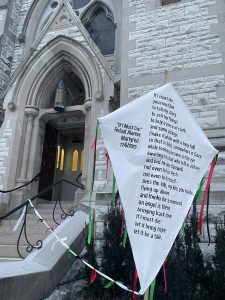
Steve Tamari, Middle East and Islamic history professor at Southern Illinois University Edwardsville, shared a poem from Palestinian writer and poet Refaat Alareer. Alareer was killed in Gaza in early December.
“[Alareer] has emerged as a symbol of what’s happening in Gaza,” said Tamari, who also organizes with the St. Louis Palestine Solidarity Committee. “I didn’t know him that well, but I knew of him, and I knew people who knew him very well. His killing hit home in a way. It was shocking.”
It is important to honor Palestinians in Gaza by hearing their stories, College Church parishioner Lea Koesterer said. Koesterer founded St. Louis Friends of Bethlehem and helped plan the vigil.
“We are not speaking for them, we are a megaphone for them,” Koesterer said. “It’s more moving than hearing statistics.”
Koesterer added that holding the vigil in a sacred space encourages “oneness and inter-faith humanity.”
College Church hosted but was not involved in planning the vigil. “We mourn for all people, especially children who have lost their lives due to conflict and war,” said Parish Life Coordinator Katie Jansen.




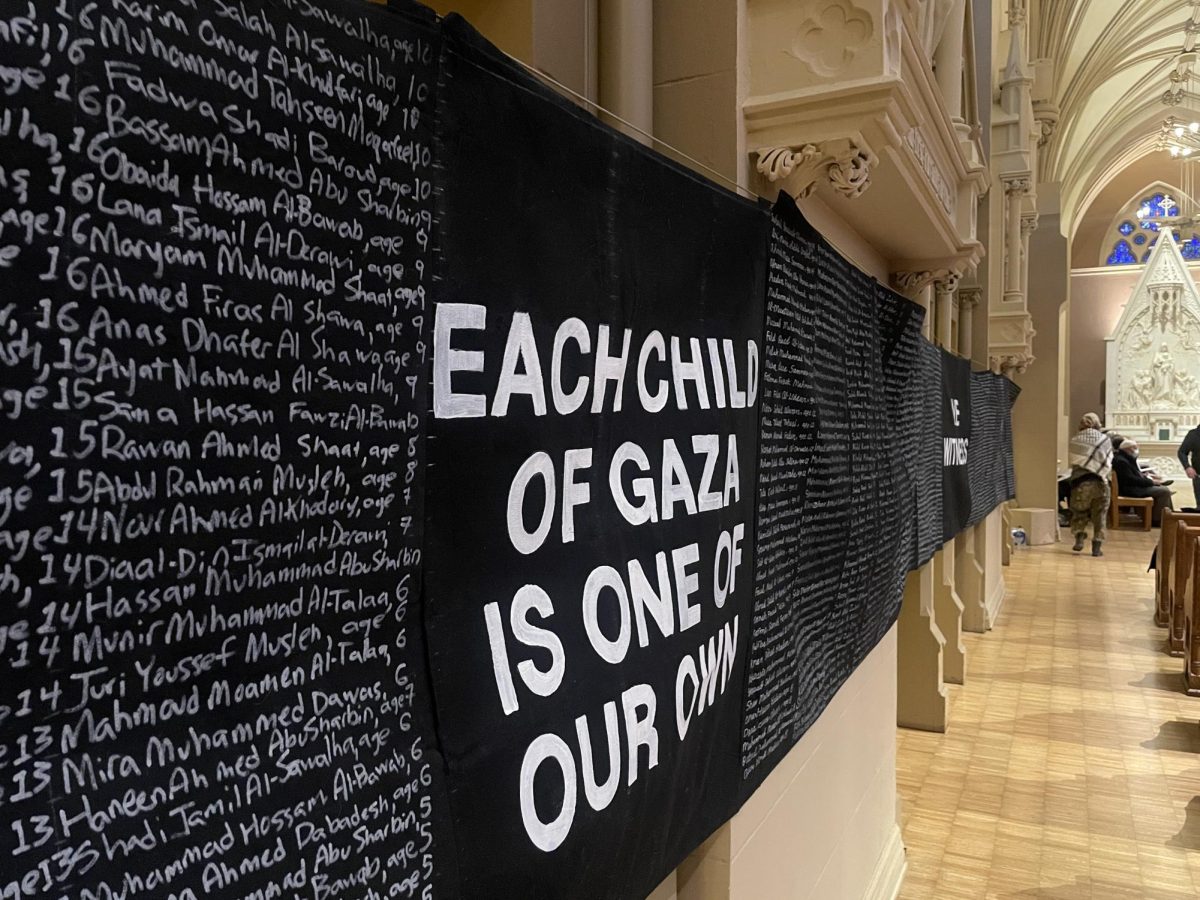








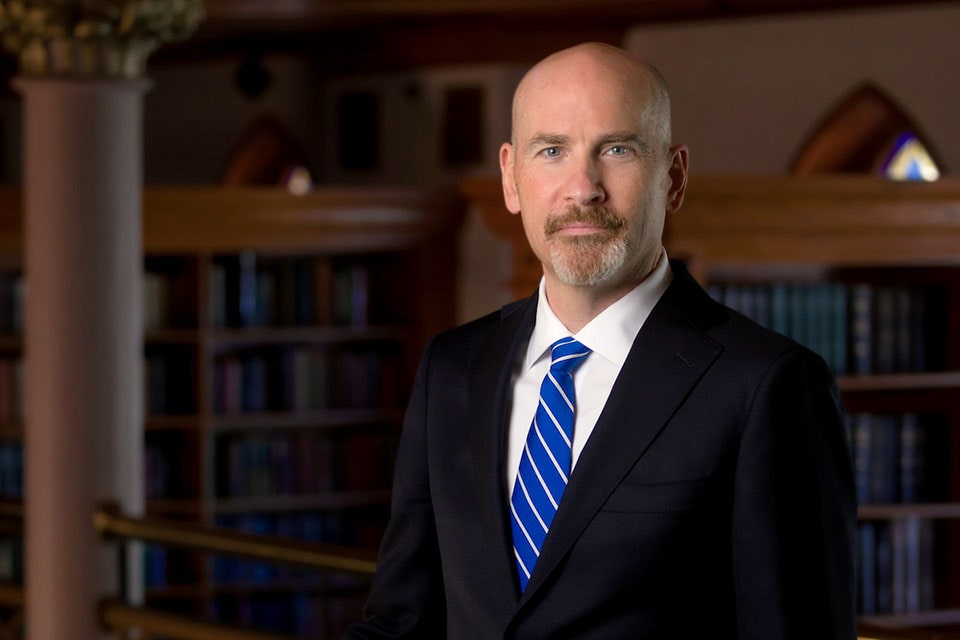

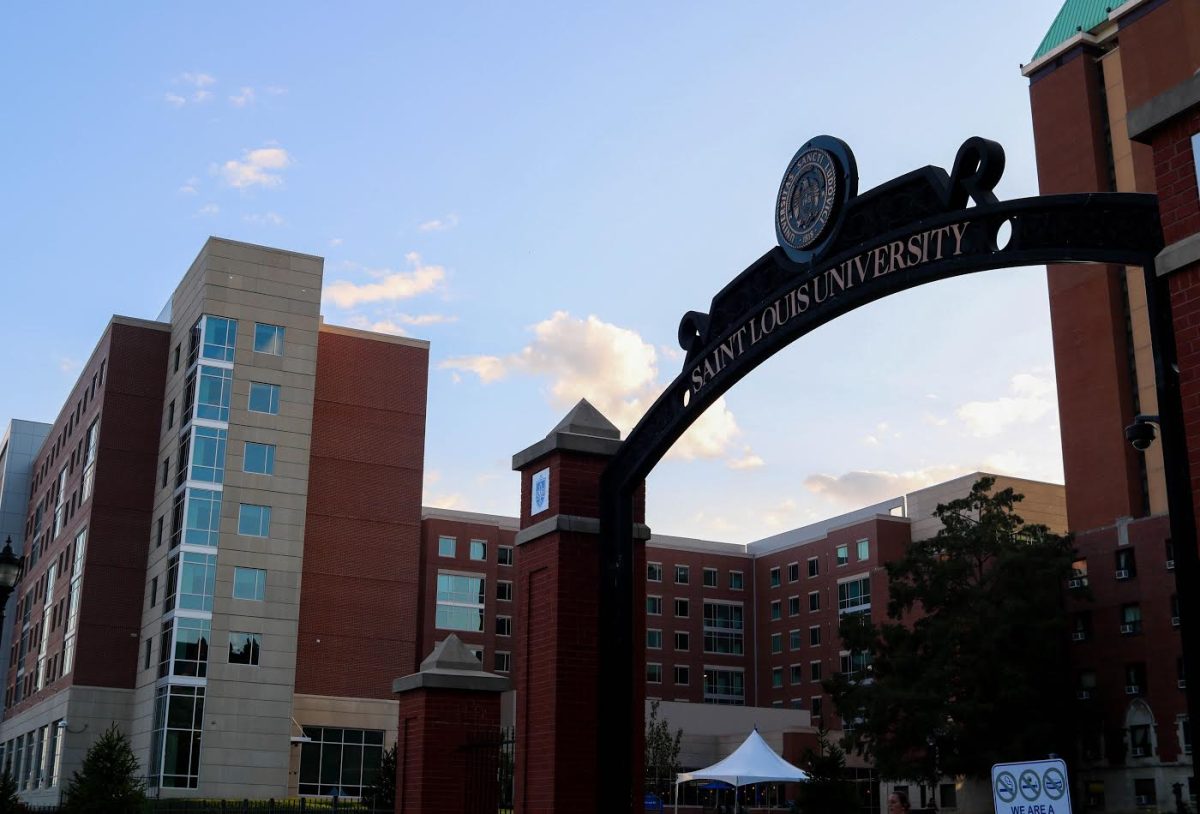
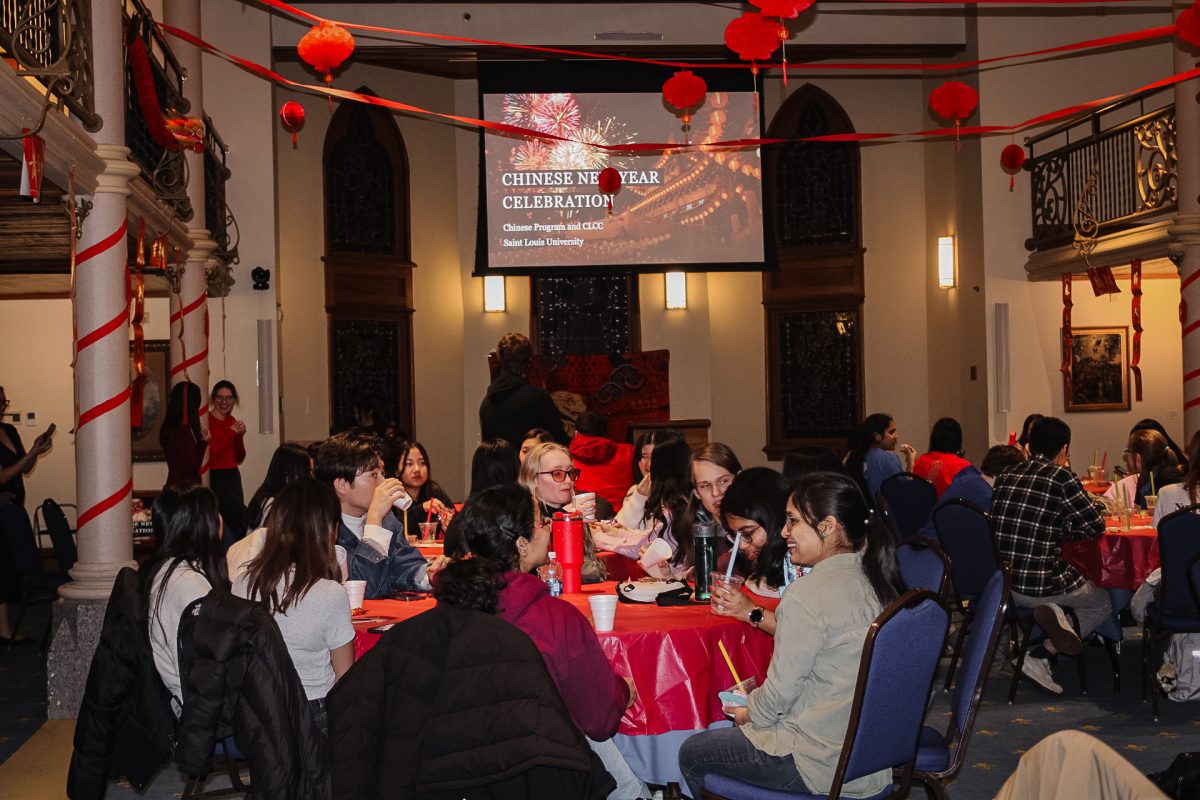



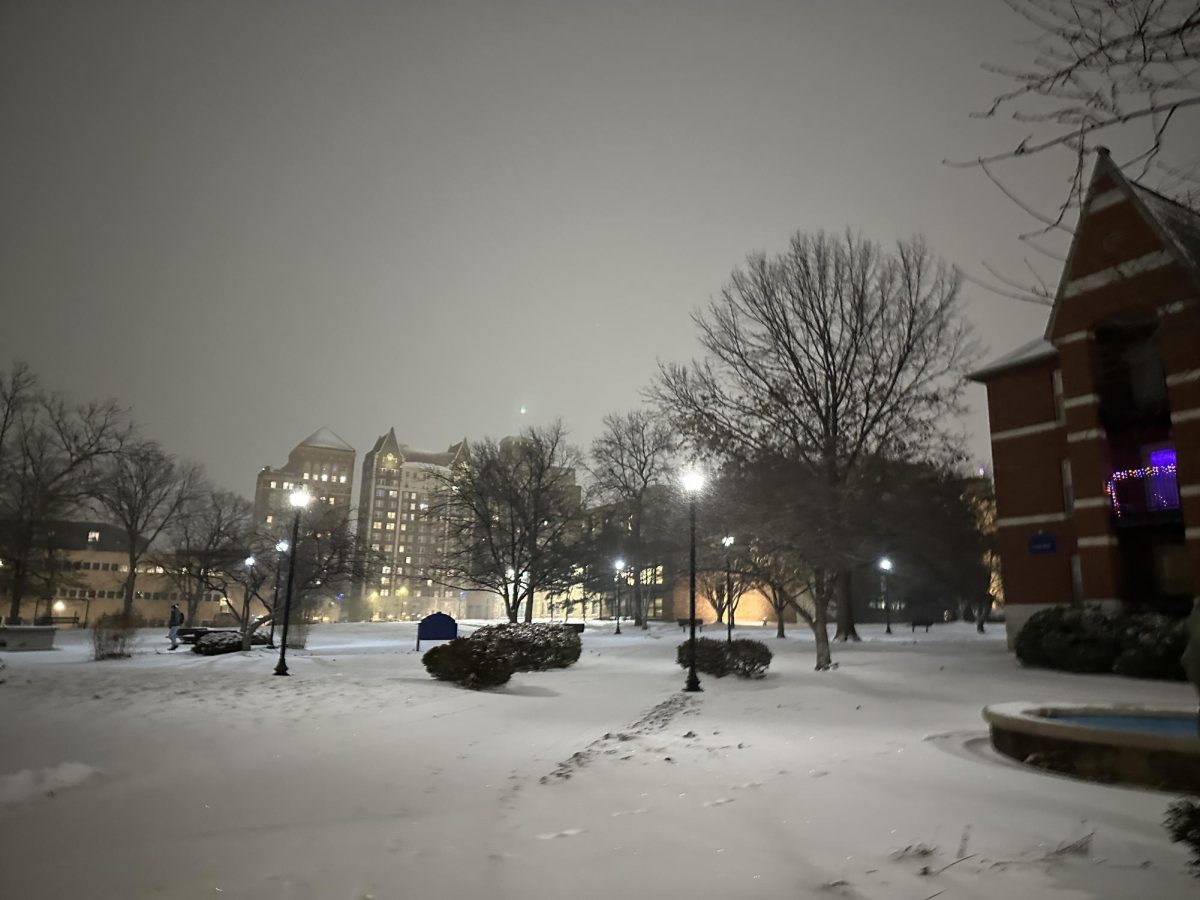
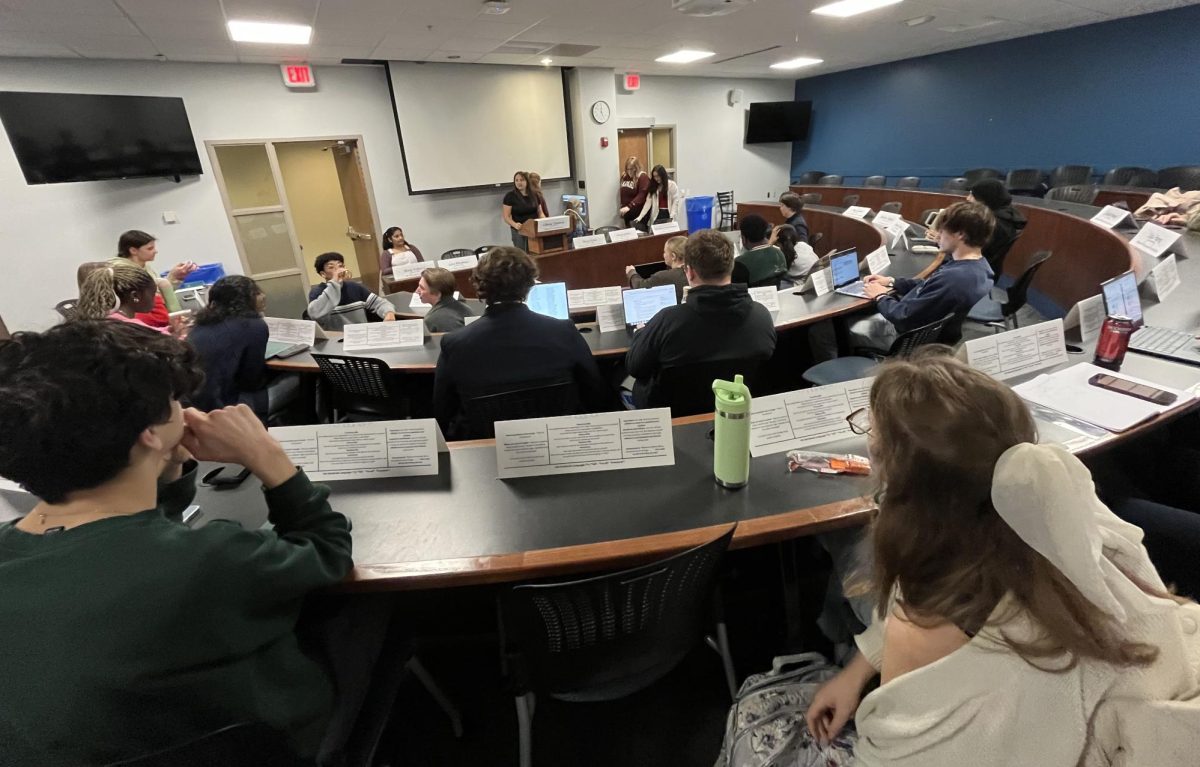

Anastasia Hanonick • Jan 19, 2024 at 12:30 pm
Thank you Ulaa for sharing this. May this call on all of us to reflect, mourn, and pray for our brothers and sisters in Gaza.